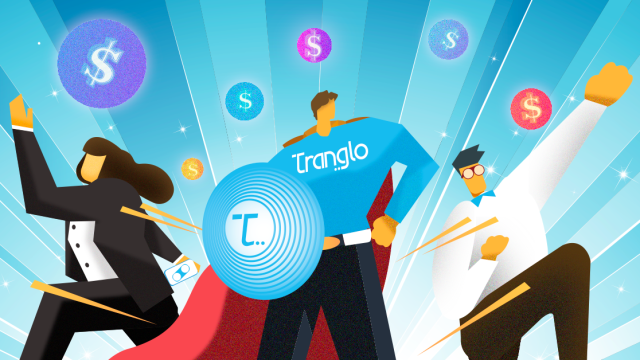Asia Pacific is one of the leading regions in digital currency and remittance. Many factors, such as higher institutional acceptance and consumer interest, have led to this development.
Some of the most traded cryptocurrencies in the world – Bitcoin and Ethereum - have a high ownership rate in Asia. Thanks to its affordable, fast and convenient nature, Asian consumers are starting to use digital assets for remittance. Asian governments, such as China, India and South Korea, are also actively involved in digital currency development, whether regulating or exploring government-backed digital currencies.
In this article, we delve into the digital currency and remittance landscape in South Korea.
South Korea’s digital currency development
Home to exchange giants including Upbit, BitHumb, CoinOne, Korbit and Gopax, South Korea is at the centre of blockchain and cryptocurrency growth.
During the first half of 2021, when Bitcoin prices peaked at a record high, about 10% of the country invested in cryptocurrencies. Based on a survey by the Korea Financial Intelligence Unit, the total of crypto investors is projected to reach 6 million in the first half of 2024, or more than 10% of the country’s population.
South Koreans are allowed to own cryptocurrencies and trade on licensed exchanges. However, the government has implemented a ban on anonymous cryptocurrency trading.
Bank of Korea (BOK), the central bank of South Korea, has been working on a central bank digital currency (CBDC) since 2020. BOK completed the first and second phases of the CBDC pilot programme in 2021 and 2022, respectively. The first phase, a 10-month programme, tested the system on a distributed ledger. In the second phase, BOK explored its use for offline payments, digital asset purchases and remittances. It has also run simulations from July to November 2022 with Korea Financial Telecommunications and Clearing Institute and 14 commercial banks.
What is expected to take place in South Korea in 2024?
Crypto.com is scheduled to debut in South Korea on April 29. This makes it the first global coin exchange to enter the cryptocurrency trading market in the country. The customised trading platform application offers crypto enthusiasts a convenient and safe way to buy, sell and store digital assets.
Another phase of South Korea’s CBDC journey is expected to start in late 2024. During this phase, BOK will test the CBDC in real-life situations, in which 100,000 selected individuals can purchase goods with tokens issued by commercial banks in the form of CBDC, much like using a voucher at the store.
This pilot programme aims to tackle challenges such as high transaction fees, slow settlement processes, limitations of post-transaction verification and fraudulent claims. However, other uses, such as personal remittances, will not be included during the 3-month testing period.
Even though South Korea has a high level of financial accessibility and well-developed payment systems - account ownership stands at 95% - its government is keen to develop CBDC amid a continuous decrease in cash use and reliance on traditional finance. Many retailers have begun to refuse to accept cash, nudging the regulator and consumers alike to find an alternative.
Remittances in South Korea
With almost 3 million immigrants in the country, South Korea is one of the top remittance-sending countries in the world. Many migrant workers, especially those from emerging markets like the Philippines, Vietnam, Indonesia and Thailand, frequently send money back to their home countries.
Remittances are made through banks, money transfer operators, online platforms and even cryptocurrencies. Migrant workers seem to prefer non-banking methods, as observed by the increase in volume seen by MTOs. The country’s digital remittances market is projected to reach USD 4.9 billion in 2024.







